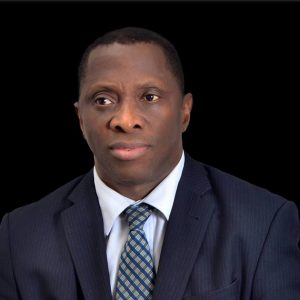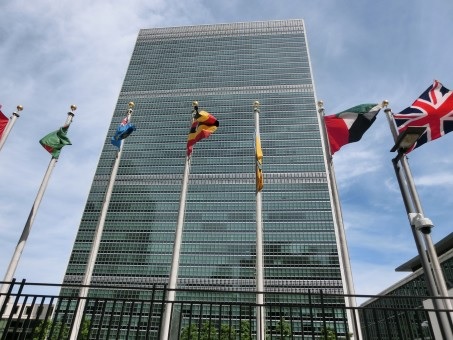Copyright © 2019 Dr. Leesi Ebenezer Mitee
Book Details
The details about Dr. Leesi Ebenezer Mitee’s upcoming book (with its companion eBook edition), The Human Right of Free Access to Public Legal Information: Its Concept and the Pioneering Proposal for its Universal Recognition (the product of his 628-page, 187,724-word innovative multidisciplinary PhD thesis) are as follows:
Book title: The Human Right of Free Access to Public Legal Information: Its Concept and the Pioneering Proposal for its Universal Recognition
Book author: Dr. Leesi Ebenezer Mitee, Doctor of Philosophy (PhD) with specialisation in International Human Rights Law, Legal Informatics (the application of information technology to legal processes and legal information systems), Indigenous Customary Law, and Indigenous Rights; Master of Laws (LLM); Postgraduate Professional Legal Practice Certificate (BL); Bachelor of Laws (BL); Higher National Diploma (HND) in Town & Country Planning
Number of Pages: 256 pages (pre-printing estimate)
Book formats: Print book (paperback edition); eBook or e-Book (digital or electronic edition)
Book series: The Human Right of Free Access to Public Legal Information Book Series, Volume 1
The three books in The Human Right of Free Access to Public Legal Information Book Series are as follows:
- The Human Right of Free Access to Public Legal Information: Its Concept and the Pioneering Proposal for its Universal Recognition (Volume 1)
- Innovative Web-Based Access to Global Public Legal Information: Technological Mechanisms for Optimal Findability and Management of Online Databases (Volume 2)
- Huricompatisation of Indigenous Customary Law: The New Human Rights-Based Model of Ascertainment for Adequate Local and Global Public Access (Volume 3)
Book Description

All human beings live, unfortunately, in a world of many injustices and deprivations. One of such serious injustices, which the persistent global problem of inadequate publication of laws causes, manifests in the unjust application of the best-known but the most-hated legal principle of “ignorance of the law is no excuse” for any violation of the law. People worldwide are unjustly punished for violating laws whose existence they cannot know, because the full texts of those laws have not been published at all, not adequately published, or people cannot understand the language in which they are published. All human beings are potential victims of such injustice because governments at the national, regional, and local levels do not publish their laws in a way that every person can easily find, use, know, and understand, to be able to obey them.
There are many ancient and modern examples of the said injustice, e.g. an English court held in 1800 that Richard Bailey, a sailor who had no way of knowing about a new law that was made while he was on the high seas, was guilty of violating that law. In 1970 a United States’ court held Ronald L. Casson guilty of violating a new federal law that was made just about six hours before he committed the act, even though that law had not yet been published, and Casson did not know about it. In 2004 an Australian court held Jeffrey Ryder Palmer guilty of fishing in a restricted area and ordered him to pay the mandatory penalty of $27,600.00 plus other costs, even when it was impossible for him to know the law that imposed the restriction and the fisheries department had only given him an incomplete part of that law. The wrong judgments of the England and Wales Court of Appeal between 2001 and 2008, because the Court and the lawyers did not know the law due to its inadequate publication, led to the bankruptcy, loss of family homes and businesses, and imprisonment of many among the 4,000 defendants that were prosecuted under the wrong law. The Supreme Court of Ghana ordered the postponement of the nationwide District Assembly elections in 2015 due to the Court’s ignorance of the applicable electoral law because of its poor publication, and the postponement was estimated to cost the government about $14.69 million.
This book is Volume 1 of The Global Public Legal Information Book Series. The other volumes are New Technological Mechanisms for Adequate Web-Based Access to Global Public Legal Information (Volume 2) and Huricompatisation: The Human Rights-Based Model of Ascertainment of Indigenous Customary Law for Adequate Public Access (Volume 3). This Volume 1 presents a pioneering analysis of the persistent global problem of inadequate access to public legal information (all laws and law-related government-held information or documents). One of its conclusions is that the right of free access to public legal information (the right to know the law) is a stand-alone or substantive human right of every human being. It discusses a comprehensive proposal that the United Nations should implement for the formal universal recognition of the right of people worldwide to know the law as a human right under its proper international human rights legal framework – a new United Nations Convention on the Right of Free Access to Public Legal Information. One of the 15 principles in the proposed United Nations Convention is the counterbalancing new doctrine of “ignorance of inaccessible law is an excuse” as the direct remedy for the global injustice of the ancient doctrine of “ignorance of the law is no excuse”.
This book is relevant to all persons, organisations, and governments worldwide because they are all potential victims of the consequences of ignorance of the law. It contains law-reform and policy-relevant proposals for the United Nations, regional human rights intergovernmental organisations, human rights NGOs, policymakers, website designers, legal informaticists, legislators, the judiciary, etc.
Keywords: Human Right Of Free Access To Public Legal Information; Ignorance Of Inaccessible Law Is An Excuse; Official Networked One-Stop Legal Information Websites; Official Public Legal Information (gTLD); Huricompatisation Customary Law Ascertainment; New Human Rights-Advocacy Approach; Customary Law Human Rights-Based Approach
Book Availability
Details on the availability of this book, The Human Right of Free Access to Public Legal Information: Its Concept and the Pioneering Proposal for its Universal Recognition, will be published here as soon as the book is published, which will be in both print (hardcover and paperback) and eBook (digital or electronic) formats and distributed worldwide.
Thank you so much for visiting this webpage.
Contact
Click here to contact the author of this book, Dr. Leesi Ebenezer Mitee.
